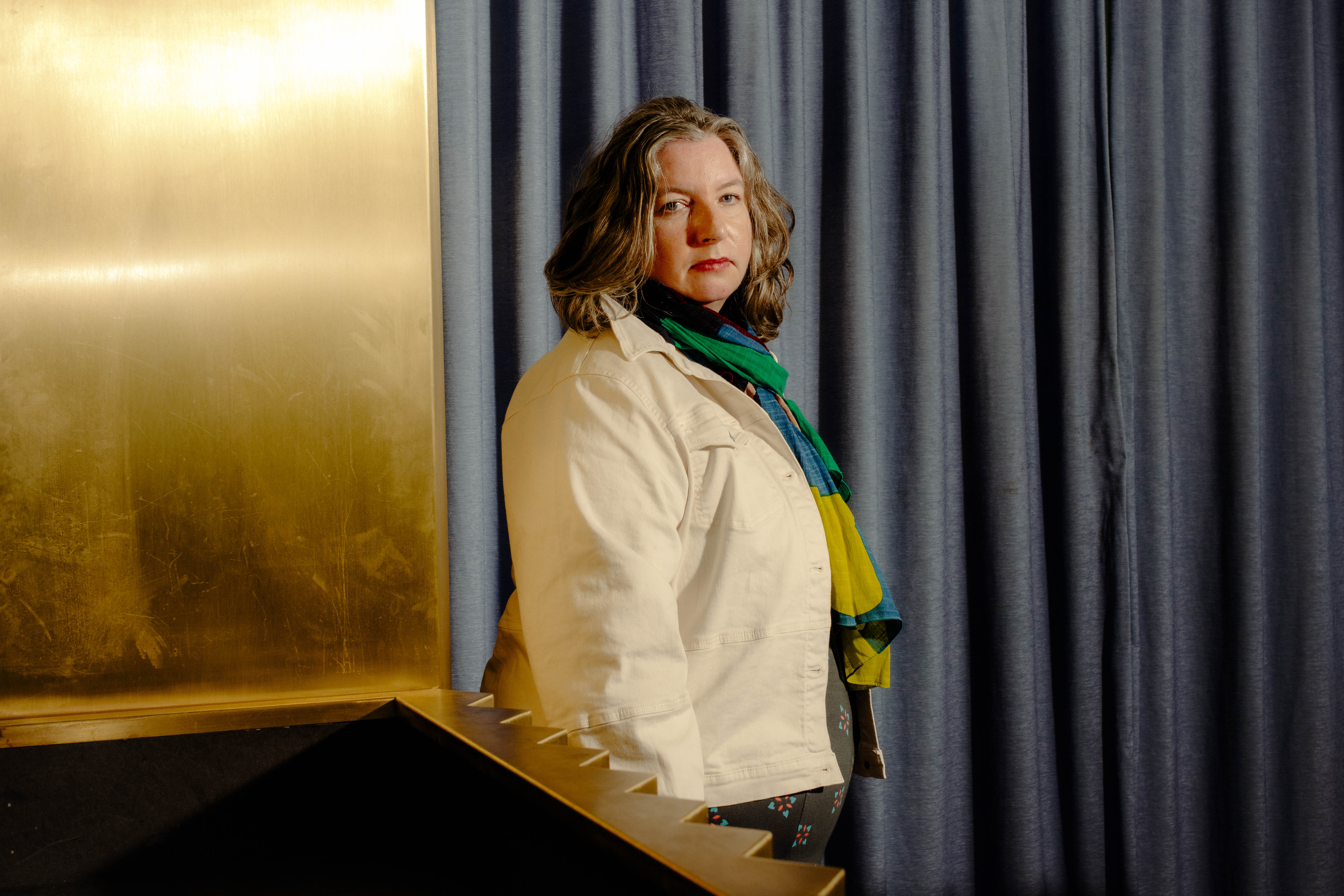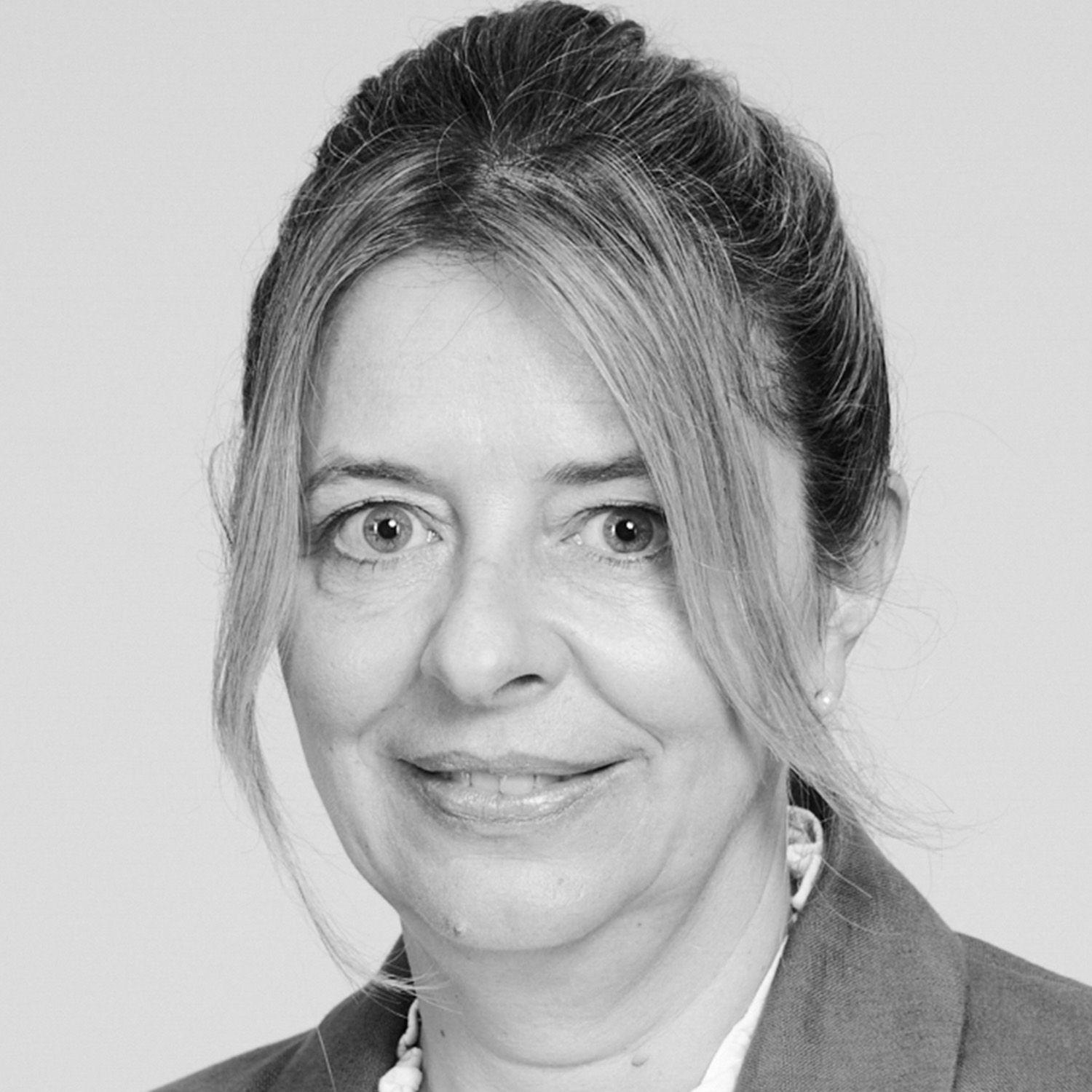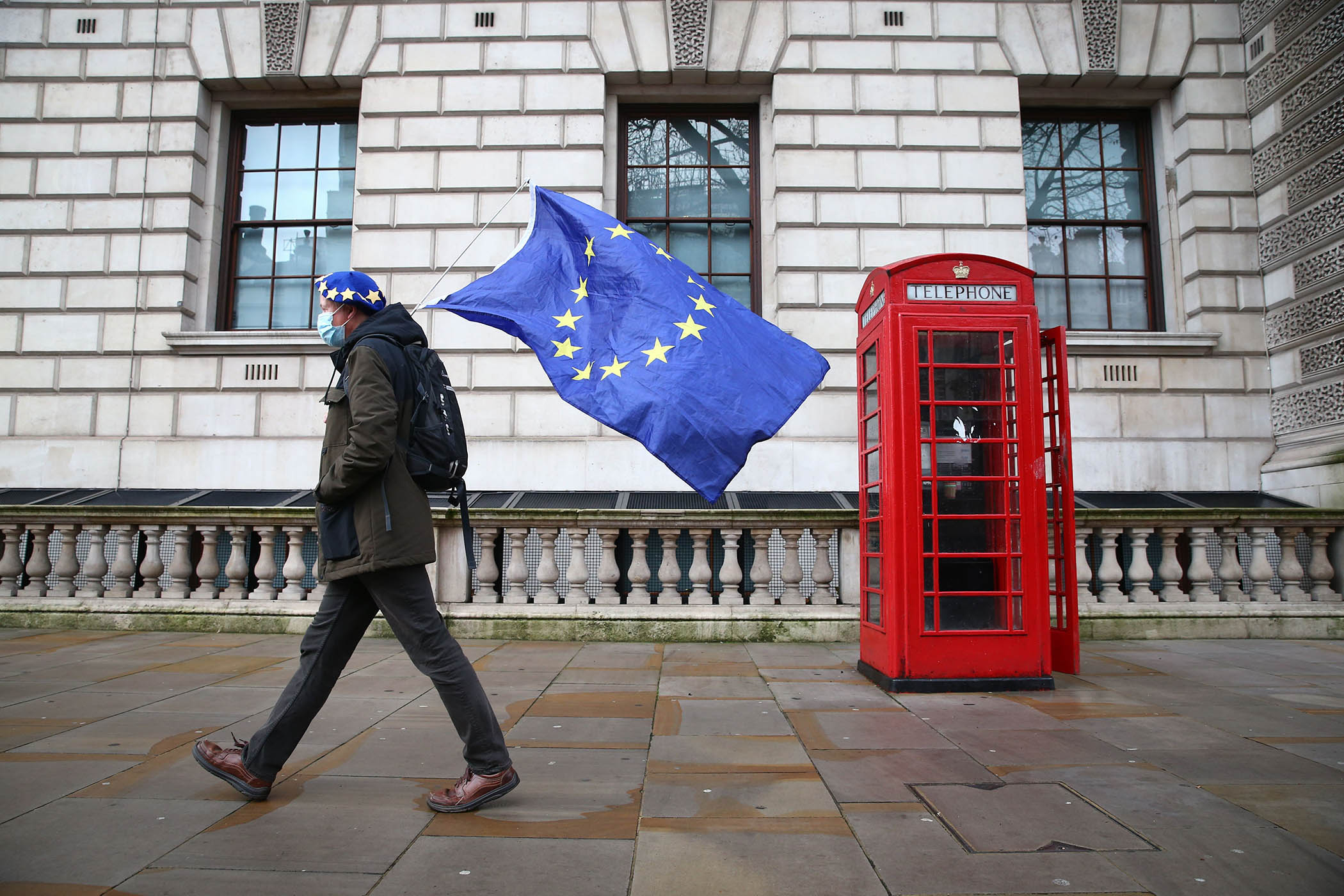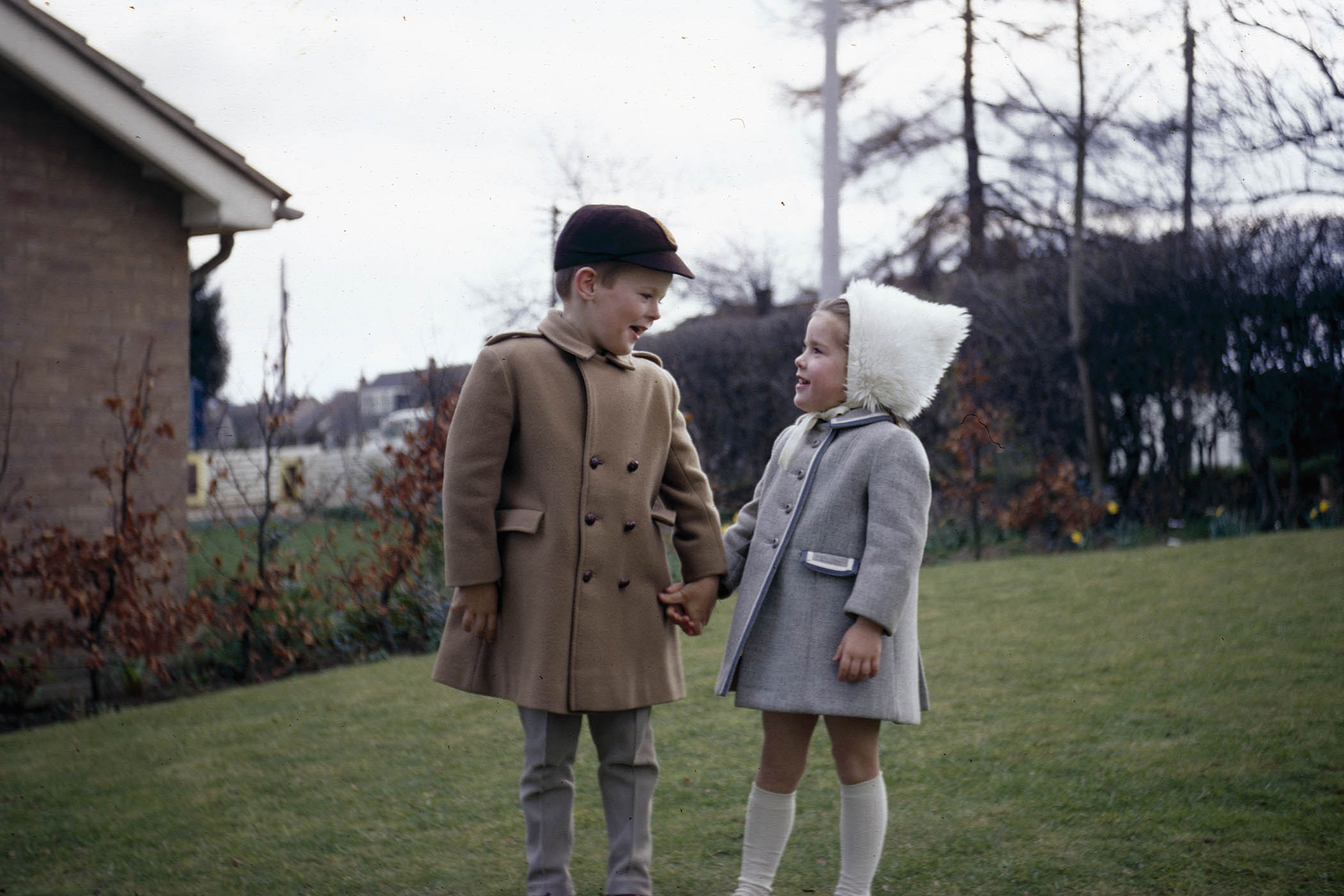At first sight, Lucy Easthope doesn’t seem much like a Cassandra. She smiles a lot and flicks her hair. Her demeanour is kind, maternal, maybe a touch pedagogic; pushed to name her profession, you might guess at nurse or teacher. But look closer.
She and I meet in the bar of a flashy hotel – she’s visiting London from the Welsh Marches, where she lives with her ex-pilot husband and children – and once we’re safely installed by a window, I see that her eyes are darting like minnows. “There are a lot of people out there,” she says, gesturing at the path that runs beside the Thames. Noticing is her business, and it can be distracting. A person in slippers on the stairs spells disaster. A crowd must be read as closely as any book. As for a walkway by a tidal river… Uh oh. Though she doesn’t say it out loud, anything could happen.
Easthope is an emergency planner whose job it is to support the survivors of major disasters, in which capacity she acted following the 2004 Indian Ocean tsunami, the fire at Grenfell Tower, the Salisbury poisonings, the Covid 19 pandemic and the heinous knife attacks in Southport last year. For two decades, none of us – the public, so blithely going about our lives – knew anything about this vital work, which went on behind the scenes, though she was hugely admired in what we might call professional disaster circles: a voice of calm and a repository of wisdom.
But in 2023, she published a best-selling book about her career, When the Dust Settles, and life changed. Readers, perhaps a little ghoulishly, were fascinated by the details. They wanted to know all about the gathering of human remains, about the returning of personal possessions to bereaved families. Having lived through the pandemic, many of them were also amazed to find that Easthope and her colleagues had been expecting the arrival of Covid 19.
“At literary festivals, most authors get questions about their writing process,” Easthope says. “But I wouldn’t get those. What people wanted from me was to know how I lived with the knowledge that I have. Wasn’t I afraid? How did I cope? I would tell them that I didn’t live afraid, and I would give them basic advice about getting outside, away from your screen – standard self-help stuff. But this wasn’t enough. They wanted help with their family situations, with bereavement or unemployment or serious illness. They wanted to know how to look ahead.”
In the end, she felt she had no choice but to write a second book, one in which she would try to distil all that she has learned for the benefit of the individual. The result is called Come What May, and when I finished reading it, the first thing I did was order a rechargeable torch.
Easthope laughs. “That’s great,” she says. “In many types of emergency at home, the lack of light is so problematic. But do make sure that you keep the battery charged.” Candles, for her, are simply another hazard. During the recent blackout across Spain and Portugal, she spoke to a journalist on the spot, and told him to emphasise this in his article. The next day he called to tell her that a woman had reportedly died in a house fire overnight, the cause of which was believed to have been a candle.
“Such advice can sound over-protective, but that’s fine,” she goes on. “Sometimes, you do feel you’re overreaching. But the thing to remember is that this is human-to-human. If you’re with someone who, say, has just got off a derailed train, you’re immediately in a different personal space with them. They might have lost their clothes. They might have soiled themselves. Even when I’m training people [in disaster planning], this is the case. They’ll cry or need to be sick.”

Workers search through rubble in Christchurch, New Zealand, after the 2011 earthquake
While her publisher describes Come What May as a roadmap for resilience, the r-word is one Easthope dislikes. “It’s problematised in our field,” she tells me. “We don’t care for it much, because politicians overuse it. Governments use it to suggest that communities will pull together after a crisis, but actually it’s a contract: the government should be doing things for us as well.” Resilience, she suggests, is also a form of privilege. “You can be more resilient in an emergency if your health is OK, or your kids are OK, or you have a roof over your head.” Is there a word she would use instead? She nods. “Ready is a better one.” It’s not that she and her colleagues want to be what she calls “town criers” of bad news. But impact assessments are important and shouldn’t be swerved, whether by individuals or larger bodies.
Another bugbear is toxic positivity. “We vastly overuse it,” she says. “We’re very good at downgrading what we think has happened to us, or to others. A really big part of my work has to do with the lies we tell ourselves. I ask people to take a bit more stock.” A cancer patient, she notes, might be grateful to know that they’re not going to die, but this doesn’t mean that the loss of their hair isn’t also important. People want to be kind, but it isn’t necessarily helpful to tell the bereaved that their elderly relative had a good innings. Is this a peculiarly British thing? She thinks it might be. Foreign colleagues have sometimes teased her about it.
Newsletters
Choose the newsletters you want to receive
View more
For information about how The Observer protects your data, read our Privacy Policy
We’re very good at downgrading what we think has happened to us, or to others
We’re very good at downgrading what we think has happened to us, or to others
Memory is crucial, whether we’re talking collectively or in terms of the individual. “With Covid, we’re in danger of forgetting everything,” she says. “People do need to move on; that’s human nature, and it’s how we survive. But I do wonder now what’s going on behind the scenes in terms of pandemic planning.” She believes Covid-19 will have a 30-year tail. “I know that’s a hell of a thing to say, but it will outlive people. If you’re a teacher in your 40s, well, that’s the rest of your career.”
The corporate memory is fragile, she tells me, but When the Dust Settles had an enormous impact on her field, far bigger than any of the academic papers she has written (she is currently visiting professor in mass fatalities and pandemics at the University of Bath). “When I arrive at incidents now, several of the command team will have read the book and will already have protected people’s personal effects, ready to be returned to their relatives.” This intimate labour, so easy to screw up, is depicted brilliantly in the BBC’s recent drama about the Lockerbie air disaster, on which Easthope worked as an adviser.
In her new book, Easthope makes the most of her own shorthand for disaster: hope, she says, is better than what she calls “hopium”, a blind optimism that’s close to denial; the Welsh word hiraeth, which translates as a heart sickness for something that’s not coming back, may be useful when it comes to acceptance (understanding what is gone allows us to see what may be rebuilt).
She also deploys the squiggle that is the disaster recovery graph, which begins with “incubation” (the pre-disaster period) and then moves through impact, heroism and an unlikely honeymoon period (when all your neighbours call round with lasagne), before what she calls the slump sets in (the moment when the well-wishers move on). The graph is a visual warning as well as an encouragement (reconstruction is the final stage). Don’t be complacent, it says. Don’t get high on the way everyone pulled together. Don’t think everything is fine before it is.
For Easthope, lasagne is a metaphor for the human rush to comfort – looking at a kitchen counter after her father’s death, she saw three of them lined up there – and she has some advice for those who may one day deliver such a dish to a friend or neighbour. “Please,” she says, “don’t ever stop donating lasagnes. But if you do give grief food, put it in some old Tupperware you don’t care about, not your Le Creuset. The last thing the bereaved need is to be badgered about your favourite plate.”
For a moment, I think about this. Her work is so unlikely: a peculiar combination of ethnography and the kind of logistics I’ve simply never considered before (she has, for instance, advised councils on the management of the mountains of flowers crowds leave at the sites of major incidents). Perhaps this is why in the moments before I leave her, I find myself stupidly asking the most basic of questions. Does she actually like lasagne? “Oh, yes!” she says, hooting with laughter. “Lasagne is good. I love lasagne.”
Lucy Easthope is the author of Come What May: Life-Changing Lessons for Coping with Crisis, published by Hodder at £20
Portrait by Charlie Forgham-Bailey
Image by Alamy



